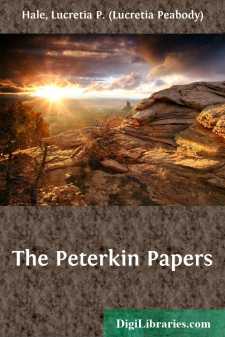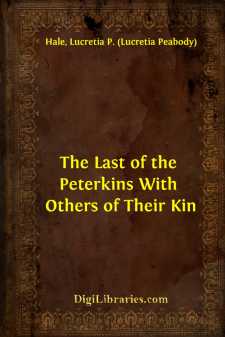Categories
- Antiques & Collectibles 13
- Architecture 36
- Art 48
- Bibles 22
- Biography & Autobiography 813
- Body, Mind & Spirit 142
- Business & Economics 28
- Children's Books 17
- Children's Fiction 14
- Computers 4
- Cooking 94
- Crafts & Hobbies 4
- Drama 346
- Education 46
- Family & Relationships 57
- Fiction 11829
- Games 19
- Gardening 17
- Health & Fitness 34
- History 1377
- House & Home 1
- Humor 147
- Juvenile Fiction 1873
- Juvenile Nonfiction 202
- Language Arts & Disciplines 88
- Law 16
- Literary Collections 686
- Literary Criticism 179
- Mathematics 13
- Medical 41
- Music 40
- Nature 179
- Non-Classifiable 1768
- Performing Arts 7
- Periodicals 1453
- Philosophy 64
- Photography 2
- Poetry 896
- Political Science 203
- Psychology 42
- Reference 154
- Religion 513
- Science 126
- Self-Help 84
- Social Science 81
- Sports & Recreation 34
- Study Aids 3
- Technology & Engineering 59
- Transportation 23
- Travel 463
- True Crime 29
Lucretia P. (Lucretia Peabody) Hale
Lucretia Peabody Hale (1820–1900) was an American author and journalist known for her humorous stories and educational writings. She is best remembered for her series of children's stories about "The Peterkin Papers," which became a classic in American literature for their depiction of a quirky family. Alongside writing fiction, Hale contributed to various periodicals, including "The Atlantic Monthly." She was also involved in education and was one of the first women elected to the Boston School Committee.
Author's Books:
Sort by:
THE LADY WHO PUT SALT IN HER COFFEE. his was Mrs. Peterkin. It was a mistake. She had poured out a delicious cup of coffee, and, just as she was helping herself to cream, she found she had put in salt instead of sugar! It tasted bad. What should she do? Of course she couldn't drink the coffee; so she called in the family, for she was sitting at a late breakfast all alone. The family came in; they...
more...
I. ELIZABETH ELIZA WRITES A PAPER. Elizabeth Eliza joined the Circumambient Club with the idea that it would be a long time before she, a new member, would have to read a paper. She would have time to hear the other papers read, and to see how it was done; and she would find it easy when her turn came. By that time she would have some ideas; and long before she would be called upon, she would have...
more...



